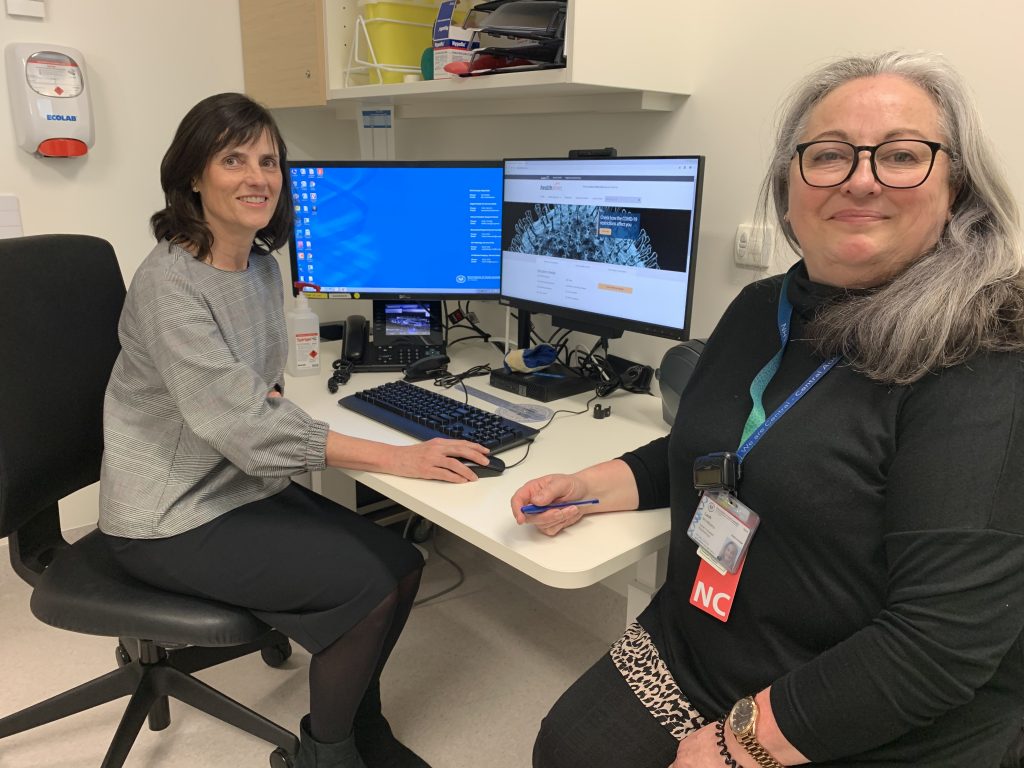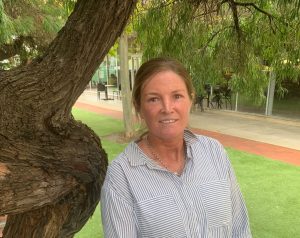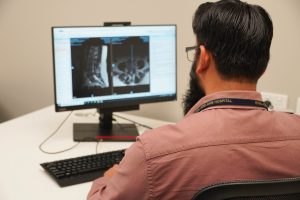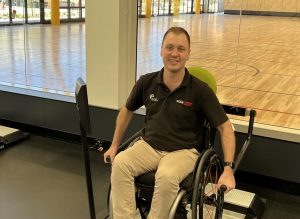Re-designing outpatient services to help patients and GPs
Delivering an outpatient service that is appropriate, timely and best practice is at the core of Central Adelaide’s outpatient redesign, which is taking place in parallel with a whole-of-state outpatient project.
Medical Lead for Surgery, Professor Jane Andrews, said during the height of COVID-19, the Central Adelaide Local Health Network (CALHN) adopted telehealth to avoid patients travelling or needing to come into hospital, moved some services away from the Royal Adelaide Hospital (the state’s main COVID-19 hospital) and stopped accepting low acuity non-urgent referrals to its outpatient waiting lists.
“With the local prevalence of COVID-19 reduced, and the community’s expectations about healthcare delivery changed, the redesign of our outpatient function focused on areas which will deliver benefits for patients and general practitioners,” Prof Andrews said.
Streamlining the referrals process:
“We are working with GPs and primary care colleagues to streamline processes and reduce the need for referrals to be returned seeking additional information, as we understand how frustrating this is for everyone,” Prof Andrews said.
“Initiatives include improving clarity and visibility of referral criteria, making it easier for you to locate the information we need to allow CALHN clinicians to undertake a safe and accurate triage.
“Where a patient lives in a different Local Health Network catchment area, we will be asking GPs to refer within the patients’ residential catchment. This is to support people being seen closer to home. This catchment map will help you to find the right LHN for your patient.
“However, when there is a compelling reason for the patient to be seen within CALHN, there is always flexibility. By including these reasons in your referral, the need for additional communication and delays can be avoided.”
Alternative care in the community
GPs are highly qualified and skilled practitioners able to deal with a wide variety of issues.
Recognising this, the Central Adelaide GP Liaison Unit (GPLU) is working with our clinicians to identify where, with appropriate specialist support, other pathways can be identified. This will allow patients to be safely and effectively treated in a community setting either instead of, or while awaiting, hospital care.
Easier and improved communication
“Central Adelaide is focused on making it easier for GPs to contact a senior hospital clinician; whether that be a nurse practitioner, senior registrar or consultant and will create and communicate channels to support this,” Prof Andrews said.
“These channels will support GPs to easily phone each unit for direct advice, before or after a patient is referred or when care is shared between GP/primary care and hospital clinicians.
“Easier access to this advice combined with GPs being provided with support and guidance to help to manage patients in the community may avoid the need to refer a patient altogether.”
“In addition to this phone service, endocrine and neurology units are commencing a trial giving GPs the ability to ask specialists questions over email to provide timely information and potentially avoiding the need for a patient to have an outpatient appointment.
“The clear advantage is being able to access email anytime, rather than both GPs and specialists needing to be available over the phone at the same time.”
Improved tools and resources for GPs:
Central Adelaide is aiming to better support GPs with resource and tools through the GP Liaison Unit, the SA Health website, IBS4GPs and the RAH’s gastroenterology website, and by collaborating with Health Pathways, the Adelaide PHN and educational organisations to provide additional education and knowledge sharing.
Upcoming examples CALHN staff are involved in include:
- A webinar with the RACGP on “How to write effective referrals…and why it matters” on 10 November. Register here or non-members can email events@racgp.org.au.
Delivering outpatient services around community needs
With a focus on patient needs, Central Adelaide is actively considering opportunities to provide outpatient appointments in a community setting (such as near or within GP clinics) or after hours.
Shared management clinics for GPs and specialists to co-consult and attachments to hospital outpatient services for GPs who would like to upskill in a particular area are also being considered.
Effectively linking primary care and tertiary care will provide genuine ways to support each other and increase communication – all important contributors to patients receiving the care that they need in the time and location that they need it.
Central Adelaide is open to suggestions and the GPLU would love to hear from GPs and their practice staff about innovative ideas which might help build and strengthen these bonds. You can contact the GPLU nurse on HealthCNAHSRAHGPLiaison@sa.gov.au or phoning switch on 7074 0000 and asking for the GP Liaison Unit.



